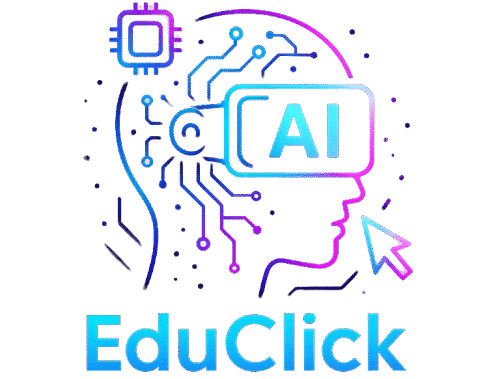Unveiling the Ethical Implications of AI in Personalized Learning: Insights from 2025
Imagine you’re a student in 2025. The classroom doesn’t resemble the traditional ones you grew up with. Instead, it’s a dynamic, virtual ecosystem where AI guides your learning journey, tailoring content to your unique rhythm and preferences. This isn’t just an educational utopia—it’s your new reality, powered by adaptive learning systems. The world has seen a monumental shift in how knowledge is imparted, and while the promise of personalized learning seems limitless, it also brings a whirlwind of ethical dilemmas requiring our immediate attention.

Consider a moment from your own educational past when a teacher’s attention made all the difference. Now imagine an AI doing just that for every student, ensuring no one is left behind. Personalized learning 2025 could be the great equalizer, yet it also poses questions that demand reflection: Who programs these systems? What biases might they inadvertently introduce? These queries aren’t just theoretical—they’re at the heart of the ethical implications of AI as we stand on the brink of a new educational frontier.
This journey through AI ethics in education isn’t just about understanding systems; it’s about understanding ourselves. As you navigate this article, reflect on how these changes resonate with your own experiences and aspirations. The stakes are high, and as the stewards of the future, we owe it to ourselves and the coming generations to ponder deeply on these matters. Join us as we explore the ethical landscape of AI in personalized education, drawing insights from the year 2025.
The Rise of Adaptive Learning Systems
Understanding Adaptive Learning
Adaptive learning systems use AI to customize educational experiences for each student. These systems analyze data to adjust teaching methods in real-time, enhancing both engagement and comprehension.
- Data Utilization: Algorithms assess your learning pace and style, presenting content tailored to your needs.
- Real-time Feedback: Immediate evaluations help in identifying strengths and areas for improvement.
- Continuous Adaptation: Systems evolve as you progress, providing a seamless learning journey.
The Benefits of Personalization
Personalized learning has revolutionized education by catering to individual needs. It bridges gaps that traditional models often overlook.
- Engagement: Students remain invested when learning aligns with their interests and abilities.
- Accessibility: These systems make education more inclusive, accommodating diverse learning styles and needs.
- Performance Improvement: Tailored approaches lead to better outcomes and deeper understanding.
The Case of Success
Consider Emma, a high school student who struggled with math. With adaptive learning, she received a curriculum tailored to her pace, turning a daunting subject into an area of strength. Such success stories underscore the power of AI-driven education.
Ethical Implications of AI in Education
Bias in Algorithmic Decisions
AI systems are only as fair as the data they’re trained on. Biases in these systems can inadvertently affect educational equity.
- Data Bias: Incomplete datasets may reinforce existing disparities.
- Algorithmic Transparency: Lack of clarity in AI decisions can create mistrust.
- Mitigating Bias: Diverse data and ethical oversight are crucial to building fair systems.
Privacy Concerns
The extensive data collection necessary for personalized learning raises significant privacy issues.
- Data Security: Protecting student information from breaches is paramount.
- Consent and Control: Students should have control over their data usage.
- Transparent Policies: Educational institutions must ensure transparent data handling policies.
Accountability in AI Systems
Determining accountability in AI-driven decisions is complex but necessary.
- Role of Educators: Teachers must remain involved to offer oversight.
- Regulatory Frameworks: Establishing clear guidelines ensures responsible AI deployment.
- Continuous Monitoring: Regular audits can maintain ethical standards.
🎥 Vídeo complementar sobre o tópico
AI Ethics in Education: The Global Perspective
Diverse Cultural Impacts
The application of AI in education varies globally, influenced by cultural values and educational norms.
- Western vs. Eastern Approaches: Cultural perceptions influence AI integration.
- Adapting to Local Needs: Systems must consider regional educational priorities.
- Cross-Cultural Collaboration: Sharing insights globally can enhance AI application.
International Case Studies
Examining AI in different countries reveals diverse applications and outcomes.
- Finland: Focuses on lifelong learning with AI-driven skill development.
- Singapore: Utilizes AI for bilingual education enhancements.
- Brazil: AI addresses educational disparities in underserved communities.
Global Ethical Standards
Creating universal ethical standards ensures fair and equitable AI deployment.
- International Agreements: Collaboration is key to establishing shared guidelines.
- Ethical Best Practices: Global initiatives can set examples for ethical AI use.
- Balancing Innovation and Ethics: Striking this balance is crucial for global acceptance.

Looking Ahead: The Future of AI in Personalized Learning
Anticipating Technological Advances
The future promises even more sophisticated AI technologies that could redefine personalized education. From virtual reality classrooms to AI-powered tutors, the possibilities are endless.
- Immersive Learning: Virtual environments could enhance engagement and understanding.
- AI Tutors: Intelligent companions might offer 24/7 assistance tailored to your needs.
- Skill Development: AI can focus on future-ready skills, preparing students for evolving job markets.
Balancing Innovation and Ethics
As AI evolves, maintaining ethical standards will be crucial. Striking a balance between innovation and ethics ensures that technology serves humanity positively.
- Continuous Dialogue: Engaging stakeholders can guide ethical AI developments.
- Policy Updates: Regularly revising regulations keeps pace with technological changes.
- Ethical Education: Teaching ethics should be integral to AI-related curricula.
Call to Action for Educators and Policymakers
Educators and policymakers must collaborate to shape AI’s role in education. By prioritizing ethics and inclusivity, they can harness AI’s potential while safeguarding against its pitfalls.
- Joint Initiatives: Collaborative projects can drive ethical AI applications.
- Public Engagement: Involving communities ensures AI addresses real-world needs.
- Future Planning: Strategic foresight is essential for sustainable AI integration.




